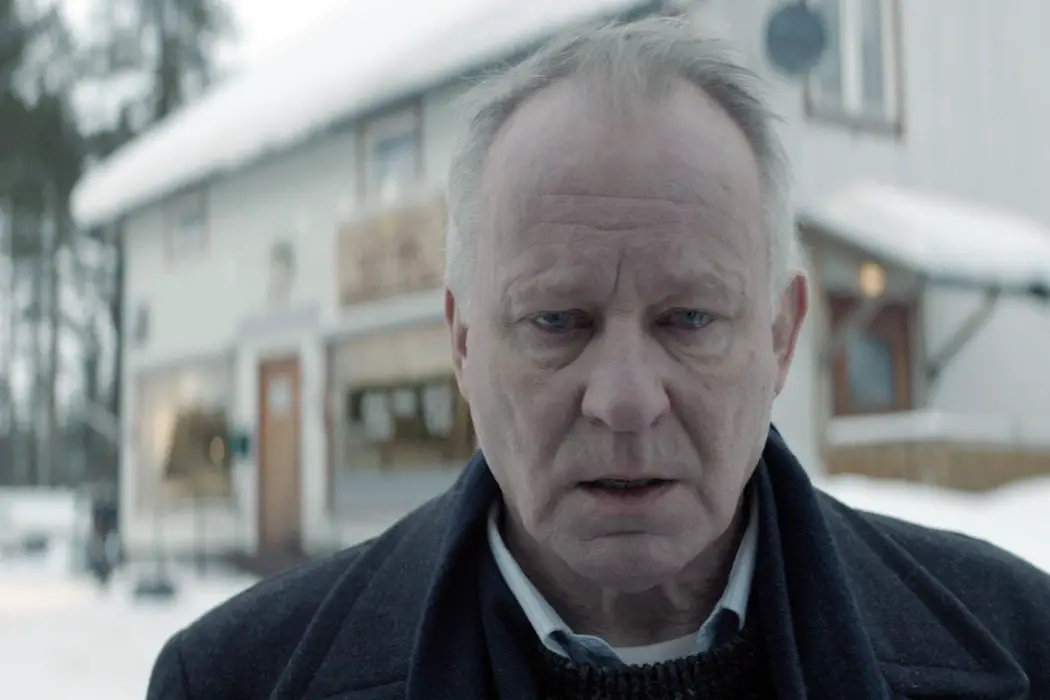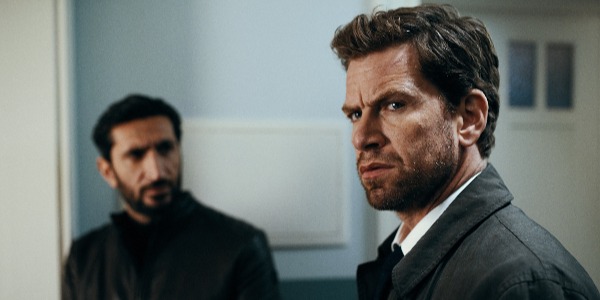Interview With CINEMA SCANDINAVIA Editor-In-Chief Emma Vestrheim

Alex is a 28 year-old West Australian who has a…
The Volvo Scandinavian Film Festival is a national film festival presented by Palace Cinemas in Australia, showcasing the best in contemporary cinema from Sweden, Denmark, Norway, Finland and Iceland. This year’s program is absolutely loaded; the highly anticipated fourth entry in the Department Q series The Purity of Vengeance, Cannes favourite A White, White Day, Hans Petter Moland’s second 2019 film Out Stealing Horses (coming off his English debut Cold Pursuit) as well as retrospective screenings of the Department Q and Millennium trilogies.
To celebrate the festival’s sixth anniversary, I had the opportunity to speak with Emma Vestrheim, the editor of Cinema Scandinavia, the go-to website for Nordic Film & Television coverage. An expert in Scandinavian cinema – both historical and contemporary – Emma was able to share with us her picks of the festival, as well as her thoughts on the popularity of the Nordic Noir genre, the Department Q series and some of her favourite modern Scandinavian actors and directors.
Alex Lines for Film Inquiry: Can you please tell us about how your website Cinema Scandinavia got started?
Emma Vestrheim: I was doing my Masters thesis at university in Melbourne and decided to start a daily blog to force myself to write something every day. That blog started to gain interest, so I turned it into a proper website called Cinema Scandinavia. A lot of people wanted to contribute to it, and we had writers from all around the world reviewing Scandinavian films. It was amazing to see just how many people were into the same niche thing I was.
What initially drew you to Scandinavian Cinema?
Emma Vestrheim: I was originally into German expressionism and the style of the really early European horror films, and whenever I’d read about how they were made the Scandinavians kept being mentioned. I started to research to see what Scandinavian cinema was, and came across films like The Girl with the Dragon Tattoo and The Seventh Seal. This was around the time that Scandinavian film was becoming really big internationally, so I knew there must be something there.

If you had to introduce someone to the world of Scandinavian Cinema, what would be some of the major directors/films that you’d pick to educate them?
Emma Vestrheim: Well I think everyone has heard of some of the greats like Ingmar Bergman, Susanne Bier and Lars von Trier. There are so many other interesting directors at the moment, and I would recommend the Norwegians Erik Poppe and Iram Haq. Poppe used to be a war photographer, and now he is directing films. His film The King’s Choice is about Norway during the Second World War, and the way he applied his unique style makes it look like an actual documentary. It’s incredible. Haq is a Norwegian of Pakistani descent, and she is doing interesting things as well – see her film What Would People Say. Otherwise good Scandinavian films to see include In Order of Disappearance (2016), Men and Chicken (2016), and Rams (2014).
Who are some of your favourite modern Scandinavian directors/actors?
Emma Vestrheim: As mentioned above, I’m really liking Iram Haq and Erik Poppe. Baldvin Z, who has Let Me Fall screening at this year’s Scandinavian Film Festival, is a very interesting Icelandic director. His film Life in a Fishbowl wowed audiences due to its take on the Icelandic economic crisis, and I think Let Me Fall has a similar affect. I think Fares Fares is an interesting actor to watch; he became well known for his leading role in the ‘Department Q’ films (screening at the festival), and he recently had a role in Chernobyl. I hope we’ll see big things from him in the years to come.
Within the realm of World Cinema, why do you think that, for all the different genres that Scandinavian Cinema has influenced (horror and drama especially), that Nordic Noir has remained such a thriving and popular “genre” for both television and film?
Emma Vestrheim: Foreign films can often be hard to translate – think of comedy. Comedy is very local and therefore many foreign films have difficulty selling comedies abroad because one country’s sense of humour is not the same in other countries. I think what makes Nordic Noir stand out is because, first and foremost, crime is a genre that can be easily translated to other countries and cultures. Everyone around the world knows the format of a police procedural. Nordic Noir is lucky in this sense.
Additionally, I think what made Nordic Noir so big is the fact that in the last 10 years, Scandinavia has become this cool and trendy region. Whenever someone hears about Scandinavia, it’s normally about how Utopian, modern, safe, and equal the countries are. Nordic Noir breaks down this perception of Scandinavia. For example, the Millennium films show that Sweden is corrupt, unequal, and dangerous.
Speaking to that, what do you think makes Nordic Noir stand out against other similar foreign crime fiction?
Emma Vestrheim: In Scandinavia, if you want to make a film or television series, you have to get funding from the government. One of the requirements is that the film or television series must depict the culture of the region. So Nordic Noir films/TV series are really reflective of the country they come from. At the same time, they are not afraid to show the negatives of their country. Combine this with the Scandinavian tradition of making artistic films (see Ingmar Bergman), and you have these slow-paced, realistic police procedurals that break down a ‘Utopian’ country.

Why do you think the Department Q series has been so successful in Denmark?
Emma Vestrheim: The Department Q films are based on a very, very popular novel series that maybe every Dane has read. Combine that with two very well-known actors, a well-known director, and a critique of Danish culture and politics, and you have the recipe for a blockbuster. You could even make the argument that it’s almost like watching an American crime on the big screen. Danes love seeing their own movies, especially when it’s their own take on American style.
Looking over this year’s Scandinavian Film Festival line-up, what would be your top recommendations?
Emma Vestrheim: Besides the films mentioned above, I’m a very big fan of Out Stealing Horses. Starring Stellan Skarsgård, the film is based on a popular Norwegian novel and follows its elderly protagonist as he moved back to his hometown after forty years abroad and there he is confronted with the traumas of his adolescence. The way the film depicts Norwegian farm life in the 1940s is powerful, and Skarsgård does an amazing job.
Additionally, I have been following Icelandic cinema since it started to become big in the early 2010s, and now the festival is showing A White White Day, which continues this beautiful development of contemporary Icelandic cinema. The film follows a male protagonist who, very slowly, starts to believe that his late wife had an affair. But the film doesn’t show this in straightforward terms; it depicts the protagonists mental state through the changing of the seasons and the building of a house. This slowness and analytical style is very typical Icelandic.
Is there any current festival titles that are missing from the program that you’d propose that people should seek out when/if they can?
Emma Vestrheim: Luckily the Scandinavian Film Festival manages to get all the major releases of the year, and it’s amazing to see the range and amount of films they screen. I think people should keep an eye on television – like the second season of Trapped or the Norwegian oil drama series State of Happiness. I hope they’ll make it to SBS!
Film Inquiry thanks Emma Vestrheim for taking the time to talk with us.
The Volvo Scandinavian Film Festival begins its tour of Australia on July 9th, starting in Sydney. Information about the program, session times, movie information and more can be found here.
Does content like this matter to you?
Become a Member and support film journalism. Unlock access to all of Film Inquiry`s great articles. Join a community of like-minded readers who are passionate about cinema - get access to our private members Network, give back to independent filmmakers, and more.













